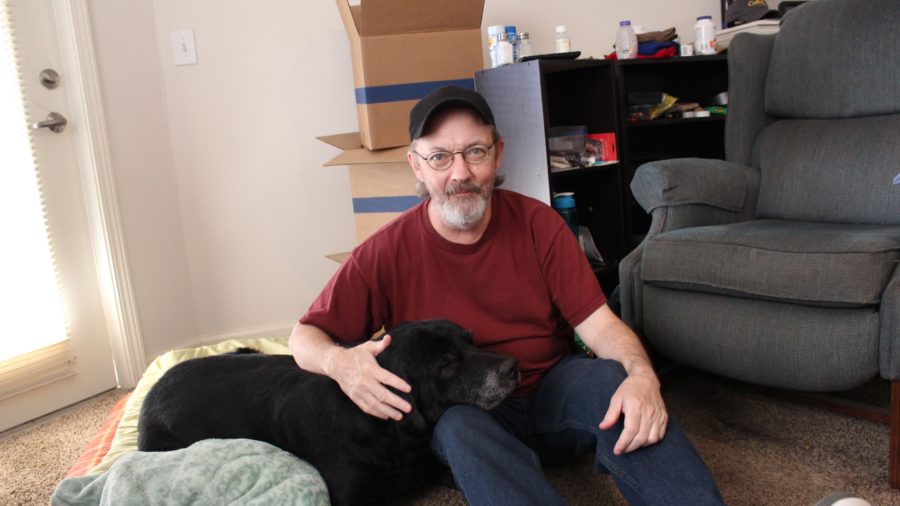This is the first in a series of articles reported in Northwest Georgia, an area rich in stories about unmet health needs and about people and programs making a difference. Georgia Health News and the health and medical journalism graduate program at UGA Grady College of Journalism and Mass Communication collaborated to produce this series, made possible by support from the Healthcare Georgia Foundation and the Institute of International Education.
Empty houses, “no trespassing” signs, and trees marked for destruction give the grounds of Northwest Georgia Regional Hospital in Rome a forlorn air. The once-bustling institution is silent except for bird calls and the distant sound of traffic.
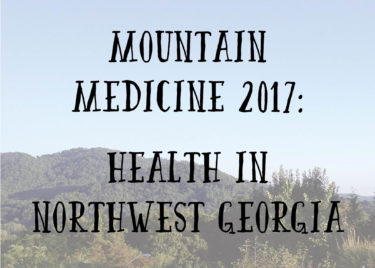
At peak capacity, the hospital had 700 employees and 2,000 residents with developmental disabilities or mental health issues. When it was shuttered in January 2011, only 185 patients remained. The rest had been relocated the previous September.
Today, many of the former residents are scattered across efficiency apartments, jails, and hospitals in Rome, Cedartown and other nearby communities. There’s no formal tracking system to say where they’ve all ended up six years later.
The hospital’s closing came after a 2010 settlement agreement with the U.S. Department of Justice that spurred the state of Georgia to move mentally ill and developmentally disabled patients to surrounding communities. At first, state employees helped hospital residents find safe and affordable places to live.
Transitional apartments, rent vouchers and new construction were part of the plan. But sometimes things happened that were not part of the plan, such as former patients who battle mental illness living on the streets and being arrested repeatedly.
Some former Northwest Regional patients have fared better than others in the Rome area, advocates say. And they add that the task of finding safe and appropriate housing for everyone is unfinished.
Although 71-year-old Delores Nowell is doing well today – working and about to buy a house – her story illustrates the ups and downs that are all too common among people with serious mental illness.
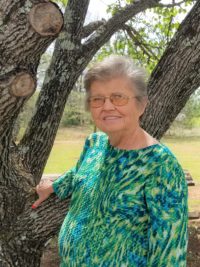
Diagnosed with bipolar disorder in her 60s, Nowell lived on the streets of Atlanta for more than four years and was jailed 11 times before her family took her to Northwest Georgia Regional. She was an inpatient there for three months, saw a psychiatrist and started a medication regimen that keeps her on an even keel.
“I needed to be somewhere to get physically and mentally stable,” Nowell said.
During her hospital stay, Nowell met someone who would prove a big help. She calls him Ricky, and he’s a liaison between the hospital and Highland Rivers Health, the community service board that operates outpatient clinics, residential treatment facilities, crisis stabilization units, and programs for people with mental health issues and developmental disabilities in a 12-county area of North Georgia.
Nowell credits Ricky with helping her rejoin the outside world.
[youtube]https://www.youtube.com/watch?v=kGpdg3j6e5Y[/youtube]She lived at a motel for six months, then moved to a one-bedroom unit at the Greystone, an apartment complex for people with disabilities.
“It was safe,” she said of the Greystone. “It was fairly inexpensive and I could save money.”
Today, she is a certified peer specialist for Highland Rivers, where she teaches classes about mental illness, medications, daily living skills and interacting socially with others. She also helps people make connections that will help them identify secure housing.
In her work, Nowell encounters people who were hospitalized at Northwest Regional Hospital at the same time she was there.
“A lot of people ended up being homeless,” she said. “It just astounded me that I kept running into the same people coming in and out. They keep losing their homes. It’s a cycle.”
Caught in a trap not of their own making
Because of their inability to deal with everyday life, people with mental illness are often arrested for disorderly conduct or similar minor offenses. When they’re released from police custody or short-term hospital stays, they are sometimes dropped off at homeless shelters if they have nowhere else to go.
“That’s not supposed to happen, and that’s not appropriate,” said Bonnie Moore, president of Rome’s chapter of the National Alliance on Mental Illness (NAMI).
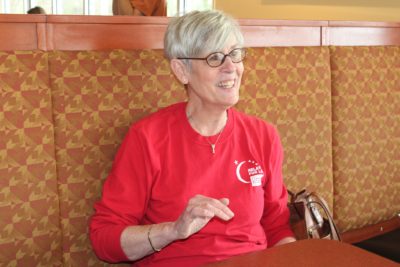
“You’re supposed to find placement. There’s supposed to be temporary housing for people coming out of the hospital,” said Moore. But because of a lack of funding, Highland Rivers and other community service boards in Georgia often don’t have enough temporary housing to meet the need.
A year ago, the independent reviewer monitoring Georgia’s compliance with the Justice Department agreement said the state is not meeting its court-supervised obligations for creating housing for people with serious mental illness.
State-run psychiatric hospitals, in fact, have discharged dozens of patients to homeless shelters, and many of them wind up being re-hospitalized, the report from the independent reviewer said.
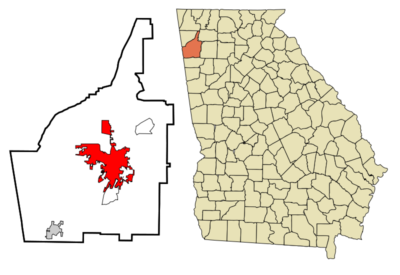
Thirty-four of these individuals had histories of 10 or more admissions to mental hospitals, said the reviewer, Elizabeth Jones.
She has also cited substantial progress made by the state in meeting many of the goals of the agreement. But in September, Jones added that “it remains essential that there be expanded outreach to and engagement with these vulnerable members of the target population.”
Many people with mental illness take refuge in motels, low-rent apartment complexes or single-family homes, some of which are overcrowded or in areas with high crime rates and unstable environments.
“It’s not good housing at all,” said Moore. “Sometimes somebody will have a private home with a room that should hold two people, but they’ll put three, four people in there.”
Stable and secure housing plays a key role in a person’s recovery and ability to thrive in the community, said the Georgia Department of Behavioral Health and Developmental Disabilities, in a statement Tuesday.
The agency said it identifies housing needs, and assists providers in helping people access housing.
“In our north Georgia region, 419 individuals have received a housing voucher and maintained stable, independent housing for at least six months,’’ the statement said. “The majority of these people were previously homeless; in a hospital, crisis stabilization unit, jail, or group home; or living with family or friends.”
Help to pay rent
In 2006, Moore’s NAMI group worked with Charles Williams REIC, a real-estate investment company in Rome, to use state funds to build or remodel apartment complexes for people with mental or physical disabilities. The goal is to keep people from becoming homeless.
People must meet certain conditions to live in the Greystone, a historic downtown building, or in the Oak Ridge or Pine Ridge apartment complexes. They must be able to handle their own basic daily activities, such as managing their medications and doing their own shopping and cooking.
“They get rental assistance if they qualify for the housing program,” says Charles Williams Jr., who heads the company named for his father. Funding from the Department of Community Affairs can subsidize rent for residents, with the amount tied to how much income they have.
Residents pay 30 percent of their income to live in one of the 30 efficiency units – each with one bedroom and a private bath – at Pine Ridge.
“If their income is $600, then 30 percent of that is $180 for rent,” said Moore.
Some Pine Ridge residents used to be inpatients at Northwest Georgia Regional; others are referred by mental health providers at Highland Rivers Health.
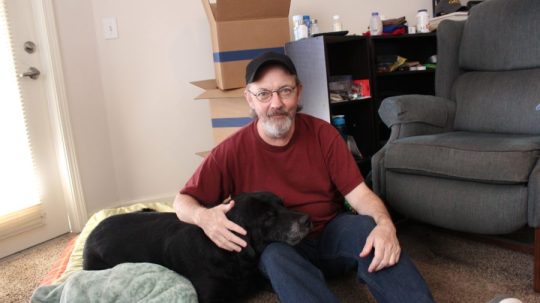
The latter was the case for William Everett, a Canton resident who has Crohn’s disease and has battled anxiety and depression. Housing vouchers subsidize his rent.
A Highland Rivers staff member filled out the application that enabled him to land an apartment in the River Ridge complex. “All I had to do was sign my name and say OK,” Everett said. He’s lived there for three years now and enjoys daily life with Sam, his service dog.
Some people who were once hospitalized at Northwest Regional are among Everett’s neighbors, and they are the lucky ones.
When Bonnie Moore is manning the NAMI hotline, she sometimes learns that a mentally ill person is on the streets or stuck residing in a dangerous area with no transportation to mental health care.
No one should be in such straits, Moore says. “One of the main things they’ve got to have to live in recovery is safe, affordable, appropriate housing.”
Saleen Martin is a graduate student at the University of Georgia working on her master’s in journalism. She is from Norfolk, Va., and received her bachelor’s degree in English and education from Virginia Wesleyan College. She has a special interest in topics relating to mental health, education, and children.

